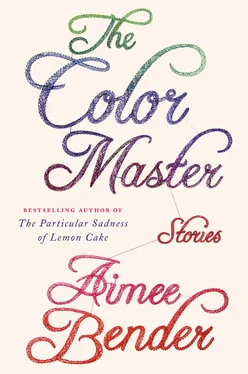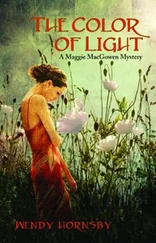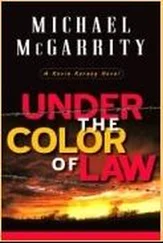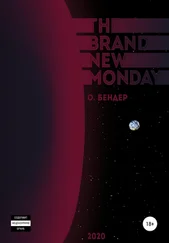for Mark
I once knew a girl who wouldn’t eat apples. She wove her walking around groves and orchards. She didn’t even like to look at them. They’re all mealy, she said. Or else too cheeky, too bloomed. No, she stated again, in case we had not heard her, our laps brimming with Granny Smiths and Red Deliciouses. With Galas and Spartans and yellow Golden Globes. But we had heard her, from the very first; we just couldn’t help offering again. Please, we pleaded, eat. Cracking our bites loudly, exposing the dripping wet white inside.
It’s unsettling to meet people who don’t eat apples.
The rest of us now eat only apples, to compensate. She has declared herself so apple-less, we feel we have no other choice. We sit in the orchard together, cross-legged, and when they fall off the trees into our outstretched hands, we bite right in. They are pale green, striped red-on-red, or a yellow-and-orange sunset. They are the threaded Fujis, with streaks of woven jade and beige, or the dark and rosy Rome Beauties. Pippins, Pink Ladies, Braeburns, McIntosh. The orchard grows them all.
We suck water off the meat. Drink them dry. We pick apple skin out from the spaces between our teeth. We eat the stem and the seeds. For the moment, there are enough beauties bending the branches for all of us to stay fed. We circle around the core, teeth busy, and while we chew, we watch the girl circle our orchard, in her long swishing skirts, eyes averted.
One day we see her, and it’s too much. She is so beautiful on this day, her skin as wide and open as a river. We could swim right down her. It’s unbearable just to let her walk off, and all at once, we abandon our laps of apples and run over. Her hair is so long and wheatlike you could bake it into bread. For a second our hearts pang, for bread. Bread! We’ve been eating only apples now for weeks.
We close in; we ring her. Her lips fold into each other; our lips skate all over her throat, her bare wrists, her empty palms. We kiss her like we’ve been starving, and she tilts her head down so she doesn’t have to look at us. We knead her hair and kiss down the long line of her leg beneath the shift of her skirt. We pray to her, and our breath is ripe with apple juice. You can see the tears start races down her face while our hands move in to touch the curve of her breasts and the scoop of her neckline. She is so new. There are pulleys in her skin. Our fingers, all together, work their way to her bare body, past the voluminous yards of cloth. Past those loaves of hair. We find her in there, and she is so warm and so alive and we see the tears, but stop? Impossible. We breathe in, closer. Her eyelashes brighten with water. Her shoulders tremble like doves. She is weeping into our arms, she is crumpling down, and we are inside her clothes now, and our hands and mouths are everywhere. There’s no sound at all but the slip of skin and her crying and the apples in the orchard thumping, uncaught: our lunches and dinners and breakfasts. It’s an unfamiliar sound, because for weeks now, we have not let even one single fruit hit dirt.
She cries through it all, and when we’re done and piled around her, suddenly timid and spent, suddenly withered nothings, she is the first to stand. She gathers her skirts around herself, and smooths back down her hair. She wipes her eyes clear and folds her hands around her waist. She is away from the orchard before we can stand properly and beg her to stay. Before we can grovel and claw at her small perfect feet. We watch her walk, and she’s slow and proud, but none of us can possibly catch her. We splay on the ground in heaps instead as she gets smaller and smaller on the horizon.
She never comes by the orchard again, and in a week, all the apples are gone. They fall off the trees, and the trees make no new ones. The air smells like snow on the approach. No one dares to mention her, but every morning, all of our eyes are fixed on the road, waiting, hoping, staring through the bare brambles of an empty orchard. Our stomachs rumble, hungry. The sky is always this same sort of blue. It is so beautiful here.
It began with his fantasy, told to her one night over dinner and wine at L’Oiseau d’Or, a French restaurant with tiny gold birds etched into every plate and bowl.
“My college roommates,” he said, during the entrée. “Once brought home.”
“Drugs?”
“Women,” said Daniel softly, “that they paid for.” Even in candlelight, she could track the rise of his blush.
“Prostitutes?” Janet said. “Is that what you mean? They did?”
The kitchen doors swung open as the waiter brought a feathery dessert to the table next to theirs.
“I did not join in, Janet,” Daniel said, reaching over to clasp her hand tightly. “Never. Not once. But I sometimes think about the idea of it. Not really it, itself—”
“The idea of it.”
“I never once joined in,” Daniel repeated.
“I believe you,” said Janet, crossing her legs. She wondered what the handsome couple sharing the chocolate mousse would make of this conversation, even though they were laughing closely with each other and seemed to have no need for anyone else in the restaurant. She herself had noticed everyone else in the restaurant while waiting for the pâté to arrive, dressed in its sprig of parsley: the older couple, the lanky waiter, the women wrapped in patterned scarves. Now she felt like propelling herself into one of their conversations.
“I’m upsetting you,” he said, swirling fork lines into his white sauce.
“Not so much,” she said.
“Never mind,” he said. “Really. You look so beautiful tonight, Janet.”
On the drive home, she sat in the backseat, as she did on occasion. He said it was to protect her from more dangerous car accidents; she liked thinking for a moment that he was her chauffeur, that she had reached a state of adult richness where you did nothing for yourself anymore and returned to infancy. She imagined she had a cook, a hairdresser, a bath-filler. A woman who came over to fluff her pillow and tuck her in. Daniel turned on the classical music station and a cello concerto spilled out from the speakers in the back, and from the angle of her seat, Janet could just catch a glimpse of the bottom of her nose and top of her lips in the rearview mirror. She stared at them for the entire ride home. Her nose had fine small bones at the tip, and her lipstick, even after dinner, was unsmudged. There was something deeply soothing to her in this image, in the simplicity of her vanity. She liked how her upper lip fit inside her lower lip, and she liked the distance between the bottom of her nose and the top of her mouth. She liked the curve of her ear. And in those likings and their basic balance, she felt herself take shape as Daniel drove.
Back at home, she spent longer than usual in the bathroom, suddenly rediscovering all the lotion bottles in the cabinet that were custom-made for different parts of the body. For feet, for elbows, for eyes, for the throat. Like different kinds of soil that need to be tilled with different tools. When she entered the bedroom, fully cultivated, skin stenciled by a lace nightgown, the lights were off. Only the moon through the window revealed the tiny triangles of skin beneath the needlework.
“Time for bed, honey,” she said cheerily, which was code for Don’t touch me . But there was no real need; his back already radiated the grainy warmth of sleeping skin. She slid herself between the sheets and called up another picture, this one of Daniel, a green bill wrapped around his erection like a condom. The itch of the corners of the bill as they pricked inside her. His stuff all over the faces of presidents. Stop it now, Janet, she thought to herself, but she finally had to take a pill to get the image out of her head; it made her too jittery to sleep.
Читать дальше












